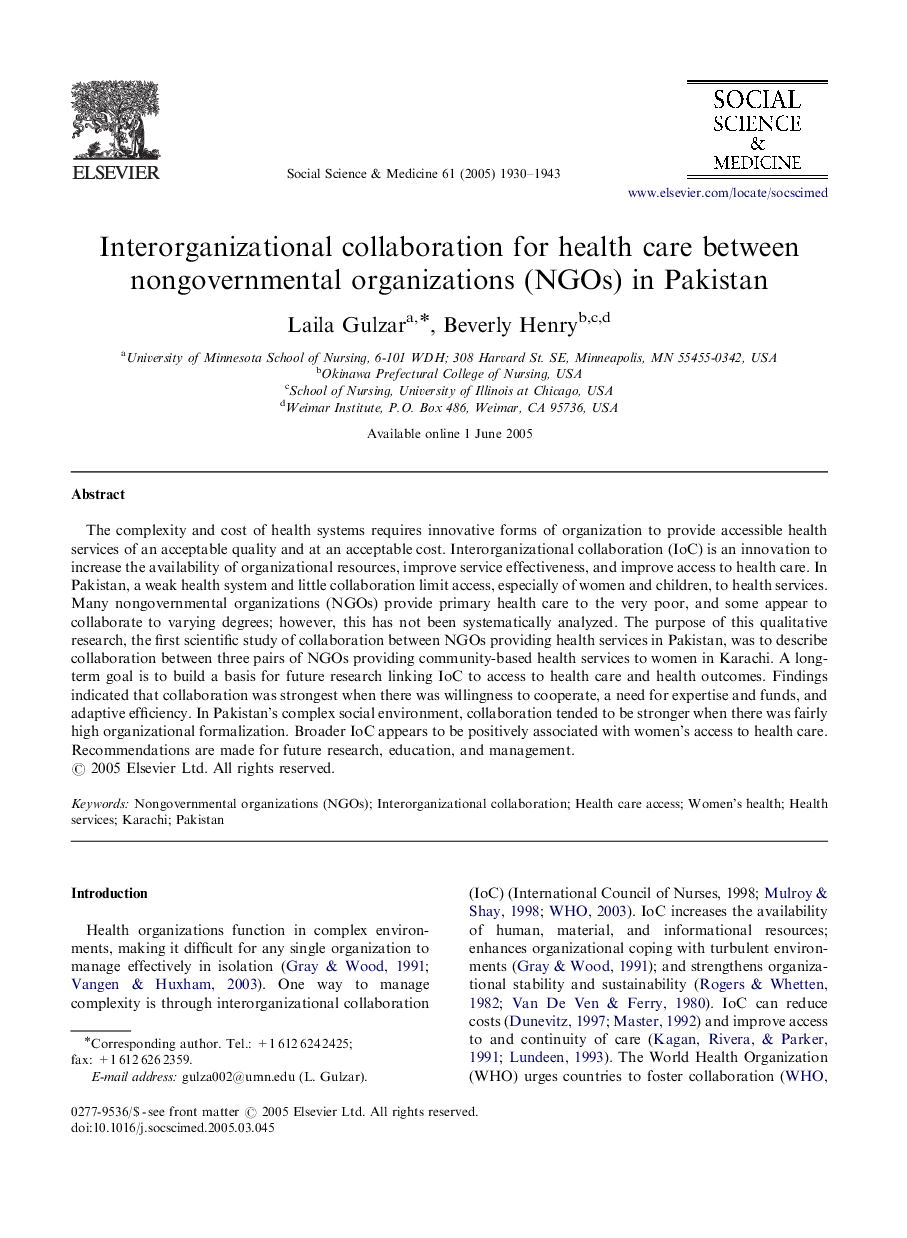| Article ID | Journal | Published Year | Pages | File Type |
|---|---|---|---|---|
| 955235 | Social Science & Medicine | 2005 | 14 Pages |
The complexity and cost of health systems requires innovative forms of organization to provide accessible health services of an acceptable quality and at an acceptable cost. Interorganizational collaboration (IoC) is an innovation to increase the availability of organizational resources, improve service effectiveness, and improve access to health care. In Pakistan, a weak health system and little collaboration limit access, especially of women and children, to health services. Many nongovernmental organizations (NGOs) provide primary health care to the very poor, and some appear to collaborate to varying degrees; however, this has not been systematically analyzed. The purpose of this qualitative research, the first scientific study of collaboration between NGOs providing health services in Pakistan, was to describe collaboration between three pairs of NGOs providing community-based health services to women in Karachi. A long-term goal is to build a basis for future research linking IoC to access to health care and health outcomes. Findings indicated that collaboration was strongest when there was willingness to cooperate, a need for expertise and funds, and adaptive efficiency. In Pakistan's complex social environment, collaboration tended to be stronger when there was fairly high organizational formalization. Broader IoC appears to be positively associated with women's access to health care. Recommendations are made for future research, education, and management.
